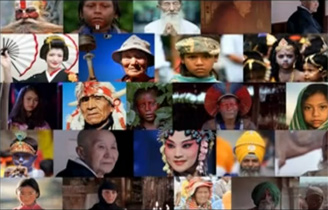Operational Directives for the Implementation of the Convention for the Safeguarding of the Intangible Cultural Heritage
 |
| Operational Directives for the Implementation of the Convention for the Safeguarding of the Intangible Cultural Heritage.pdf |
Adopted by the General Assembly of the States Parties to the Convention at its second session (UNESCO Headquarters, Paris, 16 to 19 June 2008), amended at its third session (UNESCO Headquarters, Paris, 22 to 24 June 2010), its fourth session (UNESCO Headquarters, Paris, 4 to 8 June 2012), its fifth session (UNESCO Headquarters, Paris, 2 to 4 June 2014) and its sixth session(UNESCO Headquarters, Paris, 30 May to 1 June 2016)
Paragraph(s)
Chapter I Safeguarding of the intangible cultural heritage at the international level, cooperation and international assistance 1–65
I.1 Criteria for inscription on the List of Intangible Cultural Heritage in Need of Urgent Safeguarding 1
I.2 Criteria for inscription on the Representative List of the Intangible Cultural Heritage of Humanity 2
I.3 Criteria for selection of programmes, projects and activities that best reflect the principles and objectives of the Convention 3–7
I.4 Eligibility and selection criteria of international assistance requests 8–12
I.5 Multi-national files 13–15
I.6 Inscription on an extended or reduced basis 16–19
I.7 Submission of files 20–25
I.8 Evaluation of files 26–31
I.9 Nominations to the List of Intangible Cultural Heritage in Need of Urgent Safeguarding to be processed on an extremely urgent basis 32
I.10 Examination of files by the Committee 33–37
I.11 Transfer of an element from one List to the other or removal of an element from a List 38–40
I.12 Modification of name of an inscribed element 41
I.13 Programmes, projects and activities selected as best reflecting the principles and objectives of the Convention 42–46
I.14 International assistance 47–53
I.15 Timetable–Overview of procedures 54–56
I.16 Incorporation of items proclaimed ‘Masterpieces of the Oral and Intangible Heritage of Humanity’ in the Representative List of the Intangible Cultural Heritage of Humanity 57–65
Chapter II The Intangible Cultural Heritage Fund 66–78
II.1 Guidelines for the use of the resources of the Fund 66–67
II.2 The means to increase the resources of the Intangible Cultural Heritage Fund 68–78
II.2.1 Donors 68–71
II.2.2 Conditions 72–75
II.2.3 Benefits for donors 76–78
Chapter III Participation in the implementation of the Convention 79–99
III.1 Participation of communities, groups and, where applicable, individuals, as well as experts, centres of expertise and research institutes 79–89
III.2 Non-governmental organizations and the Convention 90–99
III.2.1 Participation of non-governmental organizations at the national level 90
III.2.2 Participation of accredited non-governmental organizations 91–99
Chapter IV Raising awareness about intangible cultural heritage and use of the emblem of the Convention for the Safeguarding of the Intangible Cultural Heritage 100–150
IV.1 Raising awareness about intangible cultural heritage 100–123
IV.1.1 General provisions 100–102
IV.1.2 Local and national levels 103–117
IV.1.3 International level 118–123
IV.2 Use of the emblem of the Convention for the Safeguarding of the Intangible Cultural Heritage 124–150
IV.2.1 Definition 124–125
IV.2.2 Rules applicable to use of the UNESCO logo and the emblem of the Convention respectively 126–128
IV.2.3 Rights of use 129
IV.2.4 Authorization 130–136
IV.2.5 Criteria and conditions for the use of the emblem for the purpose of patronage 137–139
IV.2.6 Commercial use and contractual arrangements 140–143
IV.2.7 Graphical standards 144
IV.2.8 Protection 145–150
Chapter V Reporting to the Committee 151–169
V.1 Reports by States Parties on the implementation of the Convention 151–159 V.2 Reports by States Parties on elements inscribed on the List of Intangible Cultural Heritage in Need of Urgent Safeguarding 160–164
V.3 Receipt and processing of reports 165–167
V.4 Reports by States non party to the Convention on elements inscribed on the Representative List of the Intangible Cultural Heritage of Humanity 168–169
Chapter VI Safeguarding intangible cultural heritage and sustainable development at the national level 170-197
VI.1 Inclusive social development 177-182
VI.1.1 Food security 178
VI.1.2 Health care 179
VI.1.3 Quality education 180
VI.1.4 Gender equality 181
VI.1.5 Access to clean and safe water and sustainable water use 182
VI.2 Inclusive economic development 183-187
VI.2.1 Income generation and sustainable livelihoods 185
VI.2.2 Productive employment and decent work 186 VI.2.3 Impact of tourism on the safeguarding of intangible cultural heritage and vice versa 187
VI.3 Environmental sustainability 188-191
VI.3.1 Knowledge and practices concerning nature and the universe 189
VI.3.2 Environmental impacts in the safeguarding of intangible cultural heritage 190
VI.3.3 Community-based resilience to natural disasters and climate change 191
VI.4 Intangible cultural heritage and peace 192-197
VI.4.1 Social cohesion and equity 194
VI.4.2 Preventing and resolving disputes 195
VI.4.3 Restoring peace and security 196
VI.4.4 Achieving lasting peace 197
ABBREVIATIONS
Committee Intergovernmental Committee for the Safeguarding of the Intangible Cultural Heritage
Convention Convention for the Safeguarding of the Intangible Cultural Heritage
Director-General Director-General of the United Nations Educational, Scientific and Cultural Organization
Fund Intangible Cultural Heritage Fund
General Assembly General Assembly of the States Parties to the Convention
Masterpieces Masterpieces of the Oral and Intangible Heritage of Humanity
State Party State Party to the Convention for the Safeguarding of the Intangible Cultural Heritage
UNESCO United Nations Educational, Scientific and Cultural Organization
Address: 81, Laiguangying West Road, Chaoyang District, Beijing, China
Zip Code: 100021
Tel: 86-10-64966526
Fax: 86-10-64969281
E-mail: administration@crihap.cn
NEWSLETTER
Leave us your e-mail address, we'll let you know about current events.


